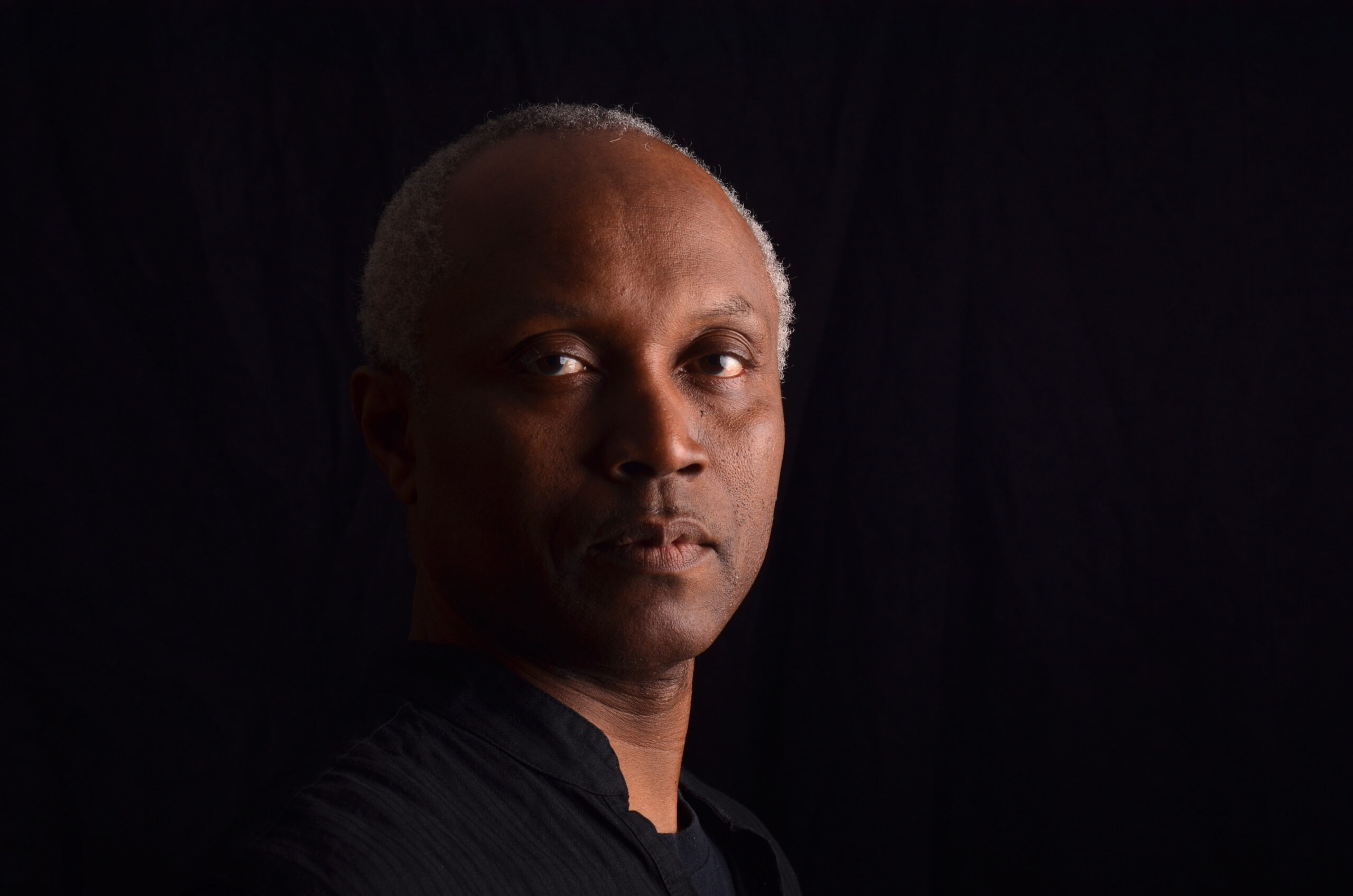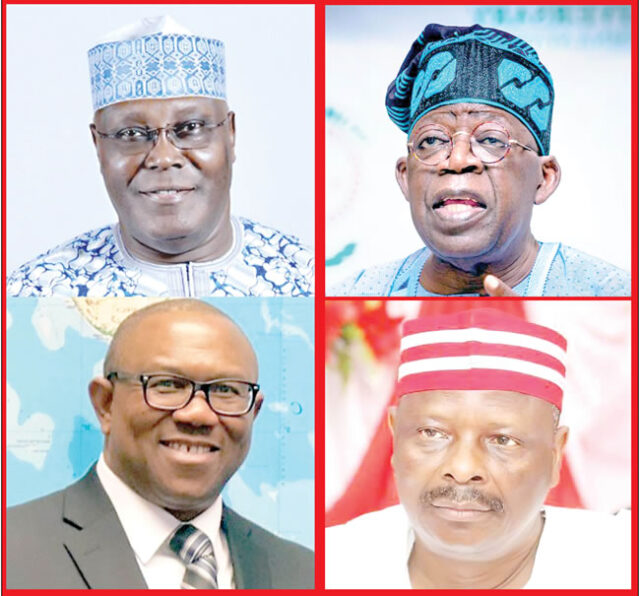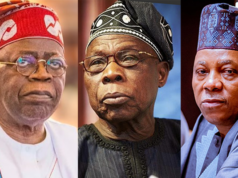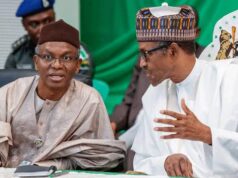 By Okey Ndibe
By Okey Ndibe
In my most recent column titled “Cancel 2023 Elections, Institute Emergency Transitional Government,” I argued that Nigeria was in no shape to move forward with the 2023 elections. Instead, the country should go for a transitional government.
Quite a few readers raised objections to my proposal. There were two broad grounds of objection. One was that the extant 1999 constitution does not provide for an interim government. Other objectors feared that any cancellation of the election would eventuate in prolonging the tenure of current President Muhammadu Buhari.
I agree: the 1999 constitution provides no path to an interim transitional government. But that fact should not detain us. First, a people’s will supersedes any constitutional document. Indeed, it is popular consent that endows a constitution with legitimacy. In that sense, Nigeria’s fundamental law is a wretched thing, a document enfeebled by bastardy. Far from embodying the will of the Nigerian people, the 1999 constitution is at war with Nigeria.
At best, the constitution reflects the spirit and imagination of Nigeria’s last custodial dictatorship led by General Abdulsalami Abubakar (ret.). I haven’t heard a single respected legal or political scholar declare the constitution serviceable, much less inspiring or imaginative. The consensus is that the document is an albatross. It drags the country down. Instead of imbuing all sectors of Nigeria with an air of liberation, it enforces a sense of unfreedom over large swathes of the country.
Nigeria has long touted itself a federation. Yet, a structural flaw has contradicted this pretension. Power is consistently over-concentrated in the center. By contrast, the states and local governments tend to operate as afterthoughts, subservient appendages to the all-powerful Abuja. The torturous Nigerian constitution has skewed the country so.
That structural imbalance must be addressed if Nigeria is to witness a semblance of order. Even so, this is but a small dimension of a much broader constitutional malaise. There’s no wholesome articulation of what it means to be a Nigerian. The space we call Nigeria is not animated by a dependable set of ideas and values, something amounting to the character of the people.
A people’s experiences and aspirations—indeed, their self-affirmations—are embedded in a sound constitution. By that measure, the Nigerian constitution is a disaster. It enshrines injustice, expropriates the vast majority of Nigerians, positions political criminals above the law, and strips Nigerians of all meaningful rights.
That’s why it makes little sense to argue that the 1999 constitution does not permit an interim government. The crux of the matter is that Nigerians must now say what is inescapable: that they have tried, with predictable futility, to run their lives on the basis of an illegitimate and irredeemable document. Scrapping the whole damn thing is a first, inevitable step.
For that matter, the oft-repeated mantra that Nigeria’s existence in its current form is non-negotiable is itself a nonsensical claim. There’s nothing sacred or settled about Nigeria. If anything, by the day, the case for Nigeria strikes more and more Nigerians as weaker and weaker. It’s time we paused to ponder the desirability or otherwise of coexisting within a polity that traffics in nightmares, disasters and dysfunction.
In the event that most Nigerians elect to sustain their fraught union, then they must agree on the terms of that coexistence. These terms must define the relationship between the federal and other units. They must also invigorate the various levers of power, especially the judiciary and legislature. In the end, they must spell out the irreducible rights of citizens.
Beyond the constitution, there’s another pressing reason to seriously consider cancelling the 2023 elections. It is this: that Nigeria is a reeling, failed state pretending to be getting by.
If you think for a second that my description of the Nigerian state is a bit exaggerated, I invite you to review a few random facts. On February 14, 2022, Nigerian lecturers went on a strike. Since then, universities have remained shuttered, with hapless students wasting away in their parents’ homes. In no serious, functioning country would the government remain indifferent to the colossal cost of shutting down university education for months. On March 28, 2022, armed terrorists stormed a train in Kaduna, killed some passengers, and spirited away. Close to three months later, Nigeria’s security apparatus has neither identified the perpetrators of this daring terrorist act nor rescued a single victim.
There’s more. A few Sundays ago, shooters stormed a packed church in Owo, Ondo State. They killed dozens of worshippers and maimed many more. No Nigerian expects the country’s law enforcement agents to find the shooters before eternity. How about the widely reported incident in Kaduna State when a helicopter appeared overhead to strafe members of a community who were trying to ward off an invasion by heavily armed herdsmen? Was the helicopter a military asset that came to the aid of criminal invaders? Or had the herdsmen become so sophisticated as to mobilize air-to-ground firepower?
Any one incident would suffice to make a case of a failed state. In Nigeria, such shocking acts of violence have become rather commonplace. The country’s leaders, the president most of all, have no answer. They’re confused, incompetent captains of an impaired vessel besieged by storms, tossed hither and thither—and on the cusp of capsizing.
The peril is real and imminent. Time is short. There’s no point asking a confused captain to take the reins from a clueless one. We need a pooling of the best talent we have. We need to reset the rules to ensure that the steering of the ship falls to the competent—not to the inept with enough cash to buy the captaincy.

Okechukwu Ndibe, better known as Okey Ndibe, (born 1960) an acclaimed Nigerian novelist, political columnist and essayist was born in Yola, Nigeria. He is the author of Arrows of Rain and Foreign Gods, Inc.
Ndibe has worked as a professor at several colleges, including Connecticut College, Bard College at Simon’s Rock, Trinity College in Hartford, Connecticut, and Brown University.
We are honored that he brings his sharp intellectual depth and years of political activism to write for Life and Times.







